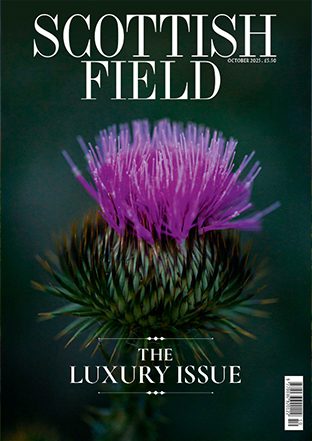Scottish Natural Heritage’s work to relocate a group of beavers living on a river in the Beauly area has been suspended until early next year.
The animals were released illegally, with three having previously been captured in the area. Two later died in captivity.
However, the news to suspend their capture has surprised landowners and farmers, Scottish Land & Estates has said.
The organisation said the decision, announced by Scottish Natural Heritage, brought concerns that the population may grow in future months and also highlighted the problems that could be caused by the lack of proper management plans.
One healthy kit is now being cared for at the specialist Scottish SPCA wildlife centre in Fife, where it will join Timber, a beaver kit rescued after being caught by a dog on Tayside. All being well, there are plans to release the two young healthy beavers at the site of Scotland’s official reintroduction project at Knapdale Forest in Argyll.

Beavers were released illegally in Beauly
Colin Seddon, the Scottish SPCA national wildlife rescue centre manager, said: ‘We are pleased to be able to accept this healthy kit to our facility. As beavers are social animals we hope the two will be company for each other and that when sufficiently mature they can be released to help in the reintroduction work at Knapdale.’
Two adult beavers died after screening by vets. Vets have established that the first animal was suffering from an eye deformity and a suspected infection. Work is underway to establish the cause of death of both animals.
Official beaver reintroductions are managed carefully to ensure populations are healthy, sustainable and large enough to minimise the risk of inbreeding.
Denise Reed of SNH said: ‘It is still our intention to trap and re-locate the remaining beavers because their presence is the result of an unlicensed release. We have stopped trapping for the time being, and we will begin trapping efforts again next year when there will be a plentiful food supply for beavers relocated to Knapdale.’
The Scottish Government announced last November that Ministers were minded to allow beavers to remain in Tayside and Argyll and expand their range naturally. However, it will remain a criminal offence to release beavers without a licence.

Two of the Beauly beavers which were caught have died in captivity
However, Karen Ramoo, policy officer (conservation and wildlife management) at Scottish Land & Estates, said: ‘The suspension of trapping measures for the illegally released beaver population at Beauly has been met with surprise by land-based businesses in the local area.
‘Cabinet Secretary Roseanna Cunningham was clear in July that ‘swift action’ was required in Beauly but little explanation has been given on why attempts by SNH to capture and relocate these beavers have now been curtailed.
‘SNH say that trapping efforts will resume on an unspecified date next year when there will be a more plentiful supply of food. However, we are concerned that such a delay may allow the population the chance to grow and to increase their range, with little management in place to stop this from occurring.
‘There is a clear need for more information on why this delay has happened and we would like to see SNH share full details of its management plan for the population, including planned trapping dates and methods, with relevant stakeholders in the area.’

Scottish Land & Estates are surprised that plans to capture the remaining Beauly beavers have been suspended
The latest information suggests only a small number of beavers remain in the wild in the Beauly system, including an adult beaver and kit.
Trapping and screening techniques adopted by SNH have been used safely in many previous cases, and were undertaken by highly qualified professionals.
Experts in Scotland have previously been involved in more than 70 beaver screening events with only one fatality, a sub-adult captured during the Tayside Beaver Study.
As part of any licensed reintroduction beavers are normally health-checked and screened for diseases, including a tapeworm (Echinococcus multilocularis) not currently present in the UK and a public health concern. The screening also makes sure the beavers are not the North American beaver species, which is already posing conservation problems in other parts of Europe.
Caledonian Forest conservation charity Trees for Life is organising a beaver information day at the Lovat Arms, Main Street, Beauly on Wednesday, October 25, from 11am-5pm.
Chief executive Steve Mickelwright said: ‘Local people are welcome to stop by for a chat about beavers, find out what they do, the problems they can cause and the benefits they can bring.’
He added: ‘We are deeply saddened that the Beauly family of beavers has now been split up and two of them have died in captivity. Beavers have been in the area for five-eight years with no local concerns or controversy. Many people had no idea they were there.’
TAGS

